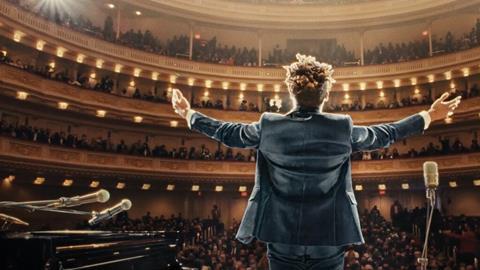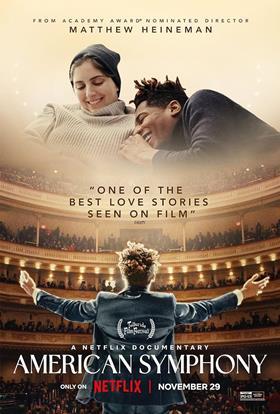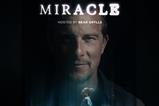The Grammy award-winning artist radiates joy in this new Netflix documentary, says Tim Bechervaise

It’s the biggest performance of your life, hundreds are watching you – and there’s a power cut on stage. But for Jon Batiste and the year he’s had, the obstacle is relatively minor, and so after a few awkward moments, he keeps calm and carries on, playing a piano piece that has everyone spellbound.
“See, nothing can stop the power of God,” Batiste tells the audience once power is restored.
The scene falls at the end of American Symphony, a new Netflix documentary by Higher Ground, the production company founded by Barack and Michelle Obama. Its original aim was to show Batiste traipsing across the US to collect inspiration and material from different musical genres for a climactic concert (called American Symphony) at Carnegie Hall.
But that changed when Batiste’s now-wife, Suleika Jaoud, discovered that her leukaemia had returned after being in remission for ten years. They were given the news on the day Batiste found out he’d been nominated for 11 Grammy awards. While the documentary still follows Batiste’s journey to Carnegie Hall, it’s set against Jaoud’s treatment. It makes for a beautifully unfiltered and intimate documentary that vividly portrays the contrast between pain and joy – or what Batiste calls the “duality” of life.
Who is Jon Batiste?
The singer-songwriter is most famous for fronting Stay Human, the house band for Stephen Colbert’s The Late Show. He’s also an Oscar, Bafta and Golden Globe winner, for his contribution to the score for Pixar’s Soul, and in last year’s Grammys he swooped five awards, including album of the year for We Are.
Those familiar with Batiste will likely know that he’s a Christian. He was raised in the Catholic Church and went to an all-boys Catholic school in New Orleans which is renowned for its marching band.
Speaking of his daily routine, he’s said: “I start by sitting cross-legged on the wooden floor of my living room, closing my eyes, and doing some deep breathing. Then I get on my knees and read the Bible.”
And in a fascinating Q&A with The Cut, he said, “I don’t like satanic music because I’m a Christian” and that, if he was hosting a dinner party for three people dead or alive, he’d invite Jesus. “I would talk to our Lord and Saviour Jesus Christ to see how I’m doing,” he said.
A faith lived
Clearly, faith is integral part of Batiste’s life, and I was interested to see how this would be explored in the documentary – particularly since it appears to have been a motivating factor in producing it: “It felt like it was much bigger than us,” he told Vanity Fair. “And even though it was more than we had bargained for going in, it felt as though this is what the spirit was leading us to do. It was a work of God that we had to complete to the end.”
As the documentary unfolds, nods to faith are frequent, if not fully explored. He’s seen falling asleep while reading the Bible, and a few times he appears to be praying, including while he’s at Joaud’s bedside as she receives treatment. When his therapist asks how he’s doing in “his faith about everything”, he replies, “I have faith that everything is changing,” before adding: “God giveth and God can take away” (reference to Job 1:21). And after power is restored at Carnegie Hall, he talks about “so many forces up against this happening”.
From a purely Christian perspective, while it would’ve been good, and indeed powerful, to hear more about Batiste’s faith – particularly as he and Jaoud grapple with the enormous pain and uncertainty surrounding her sickness – what’s most striking is who he is as a person. He radiates joy, even amid despair, and he talks about striving for acceptance and gratitude. He empowers others in their gifts, while acknowledging God as the giver of gifts, and his passion for bringing together disparate musical worlds in one concert is a powerful display of unity. And for all his showmanship, he also reveals his vulnerabilities - particularly in exposing conversations with his therapist and the powerful close-ups of him playing music.

From joy to lament, we see all sides of Batiste, and it’s through this that we see more of Jesus. His faith may not always be plainly spelt out, but in many ways, it doesn’t need to be. It’s best articulated by the words of one of the songs performed at Carnegie Hall: “Where there is sorrow, we find the joy / Ever my sorrow has cried, yet on the wings of my Lord I rise.”

American Symphony is streaming now on Netflix






































No comments yet